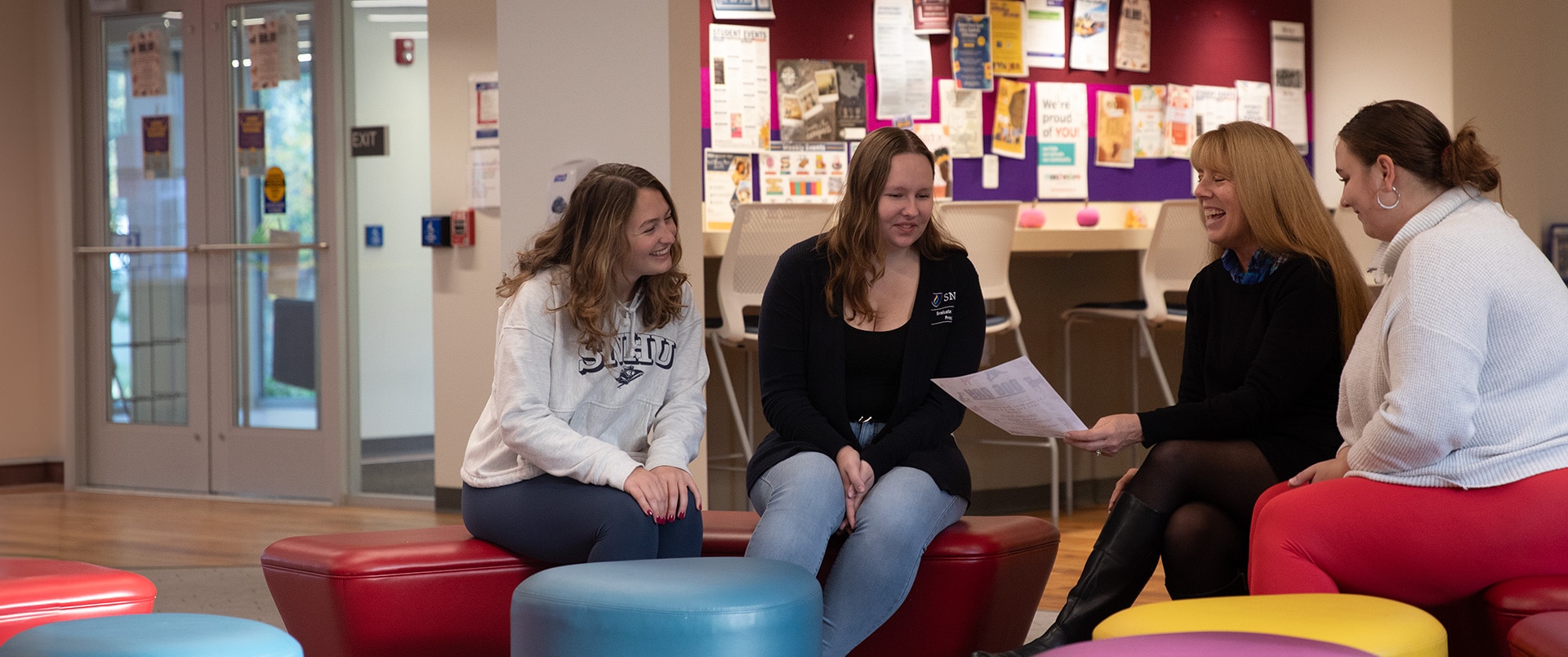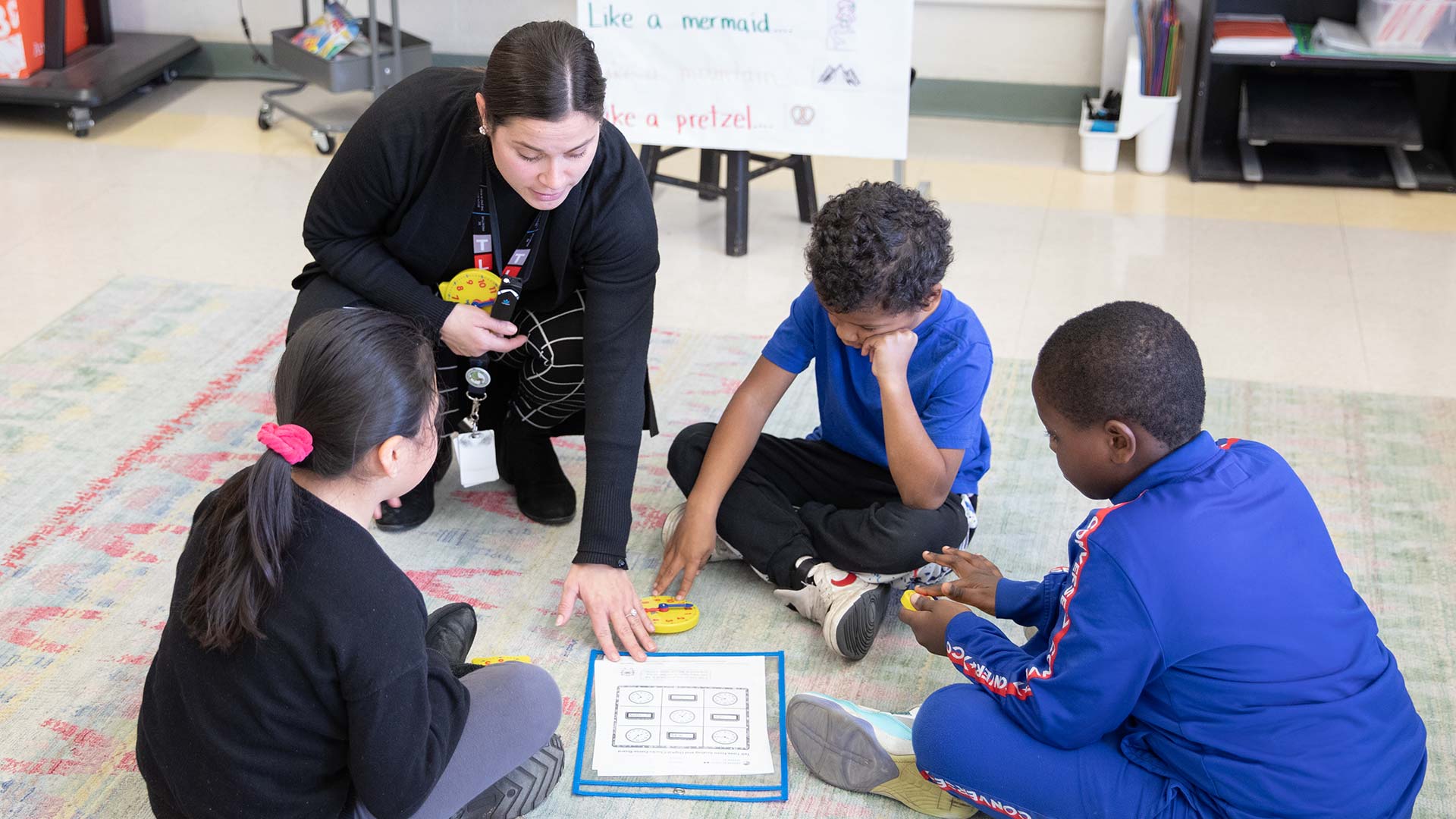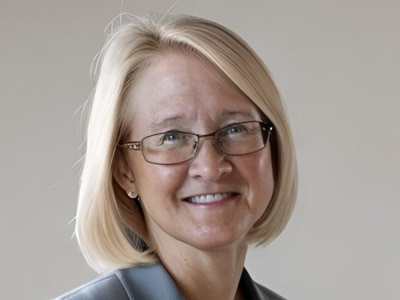Educator Practices MEd or Advanced Graduate Certificate

Program Overview Why get a master’s degree or post-master’s certificate in educator practices at SNHU?
If you’re a current educator looking to refine your professional teaching practices in a supportive environment, Southern New Hampshire University offers 2 options for advanced study through our Educator Practices programs. When you choose either the Master of Education (MEd) in Educator Practices or, if you already have a master’s degree, the post-master’s Certificate of Advanced Graduate Study (CAGS), you’ll have flexibility to create an area of focus and develop your expertise at any level, from elementary to adult education.
Skills you’ll learn:
- Planning and delivering learning opportunities
- Physical, cognitive, cultural and emotional development
- Creating inclusive and collaborative learning communities
- Leadership concepts and application
- Research-based teaching strategies
- Self-evaluation of professional growth and teaching
Note: These programs are not available to international students.

Courses & Curriculum Develop new opportunities with advanced education courses
Through a blend of online synchronous and asynchronous experiences, following a cohort model, you’ll explore content across our 5 Learning Strands — curriculum design/delivery, technology integration, assessment, teacher leadership, and learner development. As a practicing educator, you’ll engage in research with your own students and apply these concepts to your current job setting. MEd candidates will finish the program with an Action Research Practicum in place of a thesis, while GACS students research a topic of their choice in each course.
Visit the course catalog to view the full MEd in Educator Practices curriculum or the full CAGS curriculum.
Learn from instructors with industry experience
Our faculty members bring with them decades of knowledge and experience in the field of education, which informs the development of SNHU’s courses and curriculum. They look forward to supporting your journey through your program at SNHU and in your professional career.
Audrey Rogers

Position
Associate Dean, Graduate Education Programs
Joined SNHU
2007
Education
- EdD in Leadership and Learning from Rivier College
- MA in History from the University of New Hampshire
- MEd in Curriculum and Instruction from the University of Massachusetts Lowell
- BA in History from Tufts University
Dr. Audrey Rogers is the associate dean for graduate education programs and a professor of education at Southern New Hampshire University. She holds New Hampshire licensure as a social studies educator (grades 5-12) and digital learning specialist (K-12). She's past president and a current member of the NH IHE (Institutions of Higher Education) Network, a consortium of all NH educator preparation programs. Her recent research focused on competency-based education and assessment literacy in preservice educators.
Campus major courses
You’ll take major courses that provide you with a solid foundation in your area of study – in some cases featuring experiential or project-based learning opportunities, labs, simulations and internships. These courses will allow you to learn a wide variety of topics and help prepare you for a role in your desired field.
Courses may include:
Admission Requirements
Acceptance decisions are made on a rolling basis throughout the year. To apply, submit the following requirements.
- Application
- Official college transcripts
- Undergraduate and Graduate transcripts required for MEd
- Graduate transcripts required for CAGS
- Resume
If you have any questions, please contact the Office of Graduate Admission 603.645.9688 | gradadmission@snhu.edu.
Can't wait? You don't have to!
Whether you’re looking to continue your education locally or traveling across the world to experience SNHU, you can apply now. We can’t wait to meet you!
Have questions? Visit our Contact Us page.
Career Outlook What can I do with an educator practices degree or post-grad certificate?
From elementary school teachers and special educators to instructional trainers, graduates of SNHU’s Educator Practices programs are prepared to take on a variety of roles and positively impact any learning environment. Because you’re already working in an educational setting, you can immediately apply your learning to your current students, whether you're teaching kids in the classroom or employees in the corporate sector.
Career paths include:
- Educator
- Instructional coach
- Corporate trainer
- Interventionist
Job openings projected each year, on average, for all occupations in in the educational instruction sector through 2034, according to the U.S. Bureau of Labor Statistics.1
Understanding the numbers
When reviewing job growth and salary information, it’s important to remember that actual numbers can vary due to many different factors—like years of experience in the role, industry of employment, geographic location, worker skill and economic conditions. Cited projections are based on Bureau of Labor Statistics data, not on SNHU graduate outcomes, and do not guarantee actual salary or job growth.
Hear from us

We offer a dynamic range of programs designed to support your career advancement through transformative educational experiences. Our offerings provide practical, hands-on learning, professional networking opportunities and a strong sense of community fostered by our cohort model.
Audrey Rogers, Associate Dean, Graduate Education Programs
Accreditations
SNHU is accredited by the regional accreditor the New England Commission of Higher Education (NECHE). The university also carries specialized accreditations for some programs.

Sources & Citations
1Bureau of Labor Statistics, U.S. Department of Labor, Occupational Outlook Handbook, on the internet, at https://www.bls.gov/ooh/education-training-and-library/home.htm (viewed Nov. 10, 2025).
Your dream school is waiting
Apply now or schedule a visit today.

